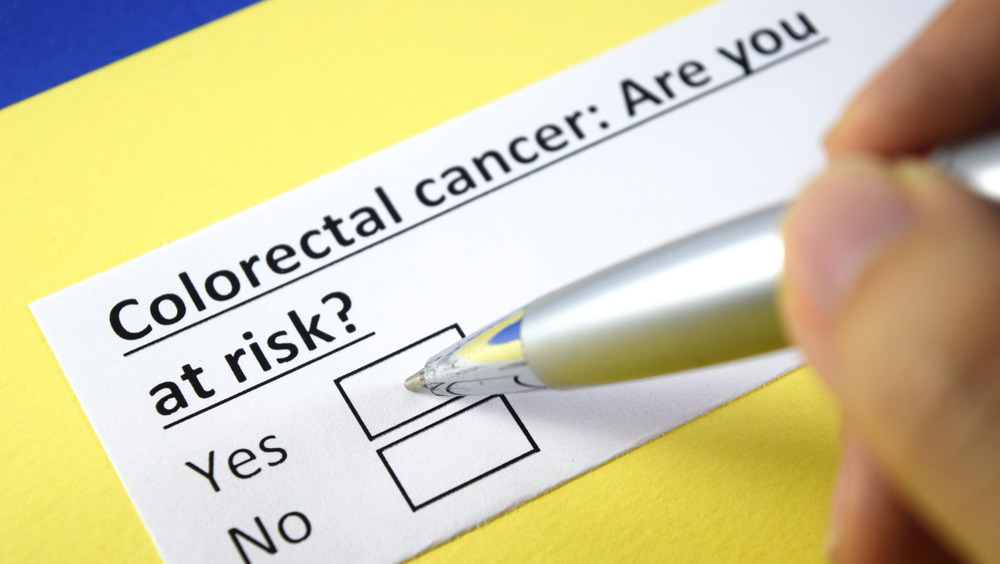What You Can Do To Decrease Your Risk Of Colorectal Cancer
There are many cancers that come with visible signs and symptoms, but one of the deadliest may develop unbeknownst to you. Colorectal cancer is the third most common cancer in both men and women, according to the Centers for Disease Control and Prevention (CDC), and it's important to keep up with preventative care to protect yourself against it.
Health Digest spoke with Andrea Cercek, M.D., Medical Oncologist at Memorial Sloan Kettering Cancer Center and Stand Up To Cancer Colorectal Cancer Dream Team Member, about best practices to fight colorectal cancer, and what to watch out for.
She advises to start with your diet, and limit the amount of red meat, alcohol, and cigarettes you consume. "It is unclear if the same is true for early onset colorectal cancer (patients under the age of 50) but a healthy diet, high in fruits and vegetables and low in red meat, along with exercise is known to decrease the risk of colorectal cancer," she said.
Even while maintaining a healthy diet, it's still important for people over the age of 50, or anyone who develops symptoms, to get screened. "The most important thing people age 50 and over can do is get screened for colorectal cancer as it can save lives when detected early. I encourage everyone to get a colonoscopy, as colorectal cancer may not have symptoms initially," Dr. Cercek advises.
Here's what to be on the lookout for
Due to a rise in the incidence of early-onset colorectal cancer, experts are pushing to have the age recommendation for screening lowered to 45. In fact, Dr. Cercek says The American Cancer Society (ACS) has lowered the recommended screening age to 45 and the US Preventive Services Task Force (USPSTF) has also drafted similar recommendations. "The new recommendation will likely lower the screening age to 45 and insurance adoption should follow after that."
In addition to colonoscopies, there are also tests that can be done at home to screen for problems, says Dr. Cercek. "Talk with your medical provider to determine when you should start screening and what screening option is best for you."
People of any age should be aware of symptoms that could indicate a problem. These include changes in bowel habits like constipation, diarrhea, rectal bleeding, bright red blood, fatigue, or weight loss. If you notice any of these, speak with your healthcare provider as soon as possible. Don't be ashamed to be upfront with your doctor, who needs this valuable information in order to help. "Details are very important as they can help your provider determine whether you need to follow up with testing. Also, if you have a family history of colorectal cancer, it is really important to let your healthcare provider know this as well," Dr. Cercek says.


